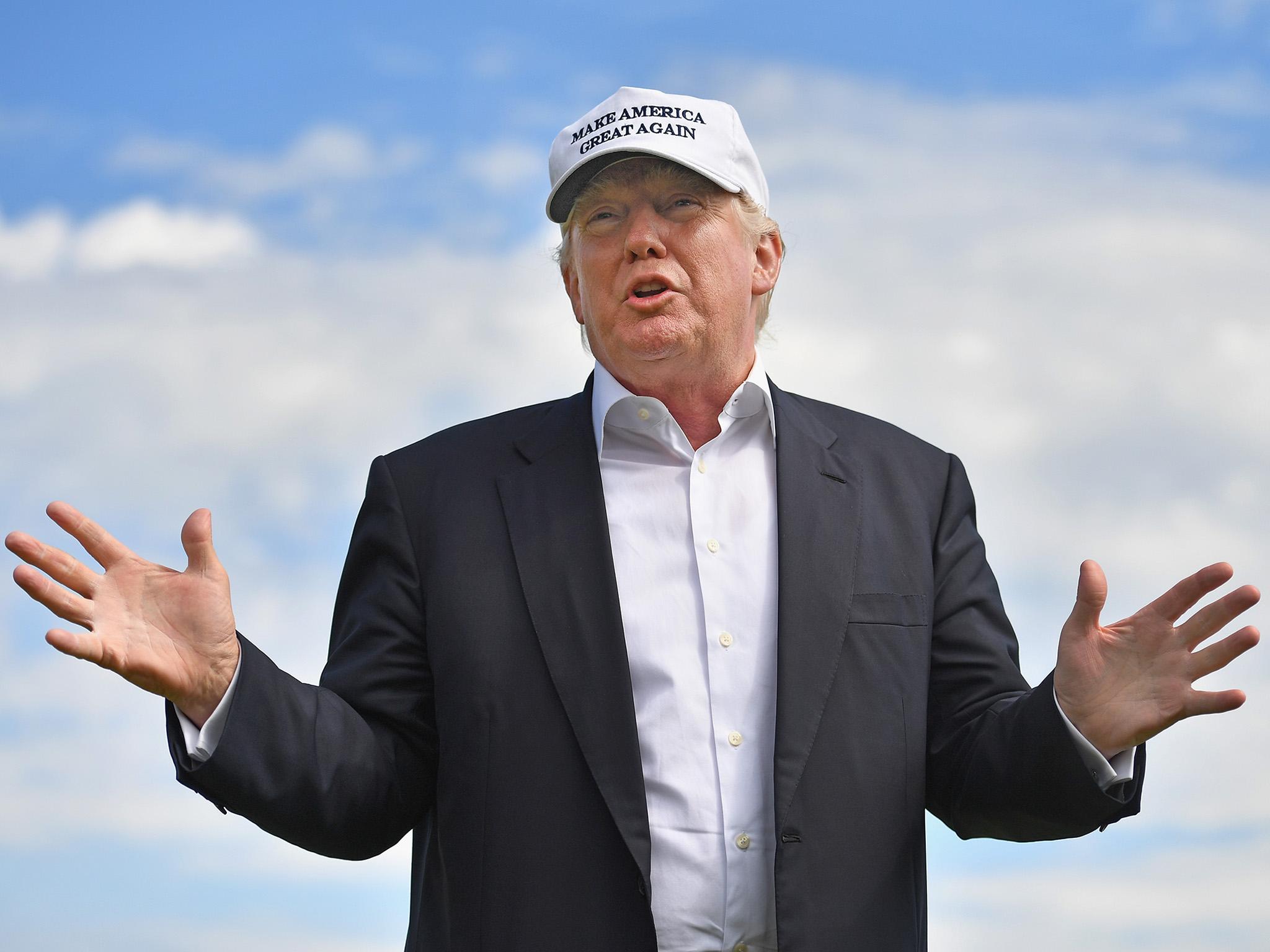Donald Trump's son Eric says Muslims from Scotland are easier to ‘vet’ than Muslims from Syria
The remarks regarding a well-integrated Muslim community in Scotland have been labelled as ‘offensive’ and ‘ridiculous'

Your support helps us to tell the story
From reproductive rights to climate change to Big Tech, The Independent is on the ground when the story is developing. Whether it's investigating the financials of Elon Musk's pro-Trump PAC or producing our latest documentary, 'The A Word', which shines a light on the American women fighting for reproductive rights, we know how important it is to parse out the facts from the messaging.
At such a critical moment in US history, we need reporters on the ground. Your donation allows us to keep sending journalists to speak to both sides of the story.
The Independent is trusted by Americans across the entire political spectrum. And unlike many other quality news outlets, we choose not to lock Americans out of our reporting and analysis with paywalls. We believe quality journalism should be available to everyone, paid for by those who can afford it.
Your support makes all the difference.Donald Trump’s son has said that Muslims in Scotland are easier to “vet” than Muslims from Syria, during the same week he was in Scotland to formally open a golf tournament.
Whilst his comments could be interpreted as a loosening of his father’s call to “ban all Muslims” from entering the US, they were also blasted as “offensive” towards the thousands of Scottish Muslims that are well-integrated and a valued part of Scotland’s society.
The 32-year-old Trump told Fox News “that people of the Muslim faith from Scotland can be vetted. That isn't so easy with Syrian refugees because documentation can be forged by Islamic State terrorists who have seized passport machines in Syria.”
Eric Trump's comments came after his father said “it wouldn't bother” him if Scottish Muslims came to the US.
Andreas Görke, a senior lecturer in Islamic Studies at the University of Edinburgh, said Eric Trump’s remarks "give the impression that Muslims need to be monitored and can’t be trusted which is offensive and ridiculous.”
A Muslim member of an Islamic cultural centre in Glasgow, who wanted to remain anonymous, said: “The whole comment is racist in itself, whether they be from Syria or Scotland.”
Asked whether he worried about Mr Trump’s ban on Muslims entering the US, he replied: “Well, Brexit has happened, so I wouldn’t say its not going to happen. What’s more worrying is that the level of possible ignorance [about Muslims], without meaning that rudely."
Several mosques in Edinburgh, a city with around 15,000 Muslims, reportedly asked Donald Trump to meet them during his latest visit to Scotland with his son, but he did not accept the invitation.
On the website of the Edinburgh Central Mosque, it reads that “Muslims love Scotland”.
“Recent surveys suggest that Muslims born here are more likely to identify themselves as Scottish than people from many other backgrounds.”
Six out of 10 Scottish people believe that Muslims are integrated into Scottish society, according to an Ipsos Mori poll in 2010.
Mazhar Khan, secretary of the Muslim Council of Scotland, an umbrella organization which has around 55 members comprising of mosques and Muslim organizations, told The Independent that the Muslim community in Scotland is “very positive in terms of its integration and engagement”.
“We’re not new, Muslims have been here for over 100 years,” he added. “We don’t have that poisonous rhetoric [in Scotland] that exists in other places.”
Although he did not directly address Eric Trump’s comments, he said he was not aware of any large-scale movement of Scottish Muslims to the US, perhaps as the Republican’s son feared.
“People travel to the US to go on holiday; I’m unaware of anything really beyond that,” he said.
The Muslim Council of Scotland was set up to encourage communities to work together, shortly after two Muslim men rammed a car loaded with explosives into the glass windows at Glasgow Airport in 2007.
Muslims were also left reeling after a Glasgow shopkeeper called Asad Shah, who moved to Scotland from Pakistan 20 years ago, was murdered in 2016 by an English Muslim man after the former posted a celebratory message about the Easter holidays on Facebook.
“Thankfully Scotland and the Scottish people have always been in a different position and we just get on with things," said the member of the Glasgow Islamic center, adding that violent hate crimes are very rare. "They [Scottish people] seem to be more intelligent and thoughtful as to what’s happening and who is responsible for it."
But he did sound a note of caution about the dangers faced by Muslim women, who he said appeared more likely to be “soft targets” partly due to their clothes.
While the Council on American-Islamic Relations has reported an increase in hate crimes against Muslims in the US, incidents of race crimes in Scotland are still relatively uncommon.
Police Scotland reported there were more than 60 hate crimes against Muslims in the weeks after the Paris terrorist attacks in November, however.
Professor Görke added that there are “so many misinterpretations of Islam” which could be fueling fear and hate.
“There are perceptions of Islam being something of a set of rules rather than being very diverse in itself, that is something I encounter,” he said. “People are uncomfortable with not knowing enough [about Islam].”
Join our commenting forum
Join thought-provoking conversations, follow other Independent readers and see their replies
Comments